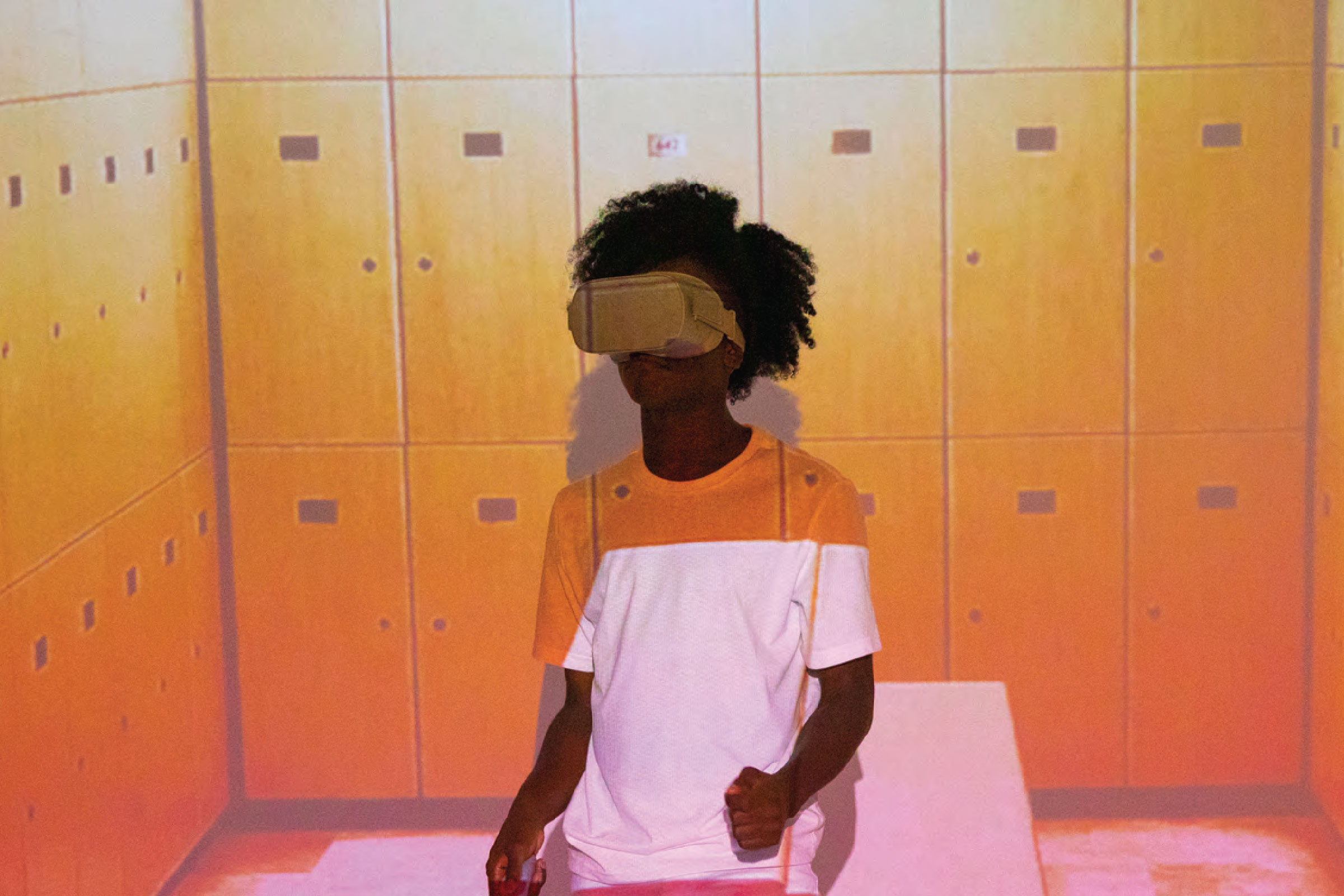I’m a big believer in the technology for what a quarterback can get out of it. They don’t get the reps in practice, yet they can bank those reps with the technology. I just think, for quarterbacks, it’s a big deal. I think it’s the future.1
RICH SCANGARELLO
Offensive Coordinator, Denver Broncos
It’s game day and the feeling in the air is intense. The team walks onto the field ready to play and prepared to win. Eight minutes into the first quarter, the starting quarterback takes a hit to the ribs and goes down visibly in pain. He’s not getting up and the stands go silent. The backup quarterback straps on his helmet and starts warming up his arm. It’s time. Is he ready? Has he practiced for this? Is he prepared to make quick decisions in the pocket under pressure?
The answer to all of these questions is yes. He’s ready. He has been here before, mentally. He has taken these snaps hundreds of times and knows exactly what to do. The timing comes naturally, instinctively. Through virtual experience, mental preparedness is translated to game-time performance.
Behind every elite sports team is rigorous practice, preparedness, and repetition.
The best athletes focus on applying this to improving not only their physical game but their mental game. It’s this mental preparedness that can change the game and make a true difference in staying calm under pressure. For football, the mental part of the game can be challenging to access, traditionally taking weeks poring over hundreds of plays in gameday video footage and hard–copy playbooks.
This all changed in 2014, when Virtual Reality (VR) hit the field. It took the form of a 6–lense, 360-degree camera that would record plays from a first person vantage point. This footage would then be uploaded to a headset that allowed players to immerse themselves into the position through
VR. It was no longer just sitting back passively watching 2D video, it simulated actually being on the field. This marked a milestone in sports training. Athletes could now get access to mental reps on demand, and practice plays without the need for equipment, coaches, opponents, or wear and tear on the body. And it could be done anytime, anywhere.
Training in VR allows athletes to focus on the moments that matter, from practicing precise timing to making instant decisions. The in–headset footage provides a realistic environment with video captured on the field so that players recognize patterns faster during the actual game. VR also offers on-demand access so that players get unlimited practice reps from the exact vantage point they would be on the line of scrimmage.
It puts you right down inside the play, and you can hear the calls, which you can’t hear on regular coaches film.2
KIRK COUSINS
Quarterback, Minnesota Vikings
The benefits of immersive training go far beyond the football field. The decisions quarterbacks must make in a matter of seconds during a game are similar to the decisions managers must make in the business world. Being prepared to make a split-second decision could be a matter of safety, a lost customer, or discrimination. Having the ability to practice necessary skills in a safe environment before ever being put into that situation in the real world could make the difference.
And for the backup quarterback needing to step onto the field unexpectedly that Sunday morning, it’s a game changer. Shouldn’t we all be able to train like an athlete?
- The Athletic: ‘I think it’s the future’: Why Broncos OC Rich Scangarello believes virtual reality is a necessity for young QBs (October 30, 2019)
- Minnesota Star Tribune: Kirk Cousins blown away by Vikings’ virtual reality room (July 24, 2018)
